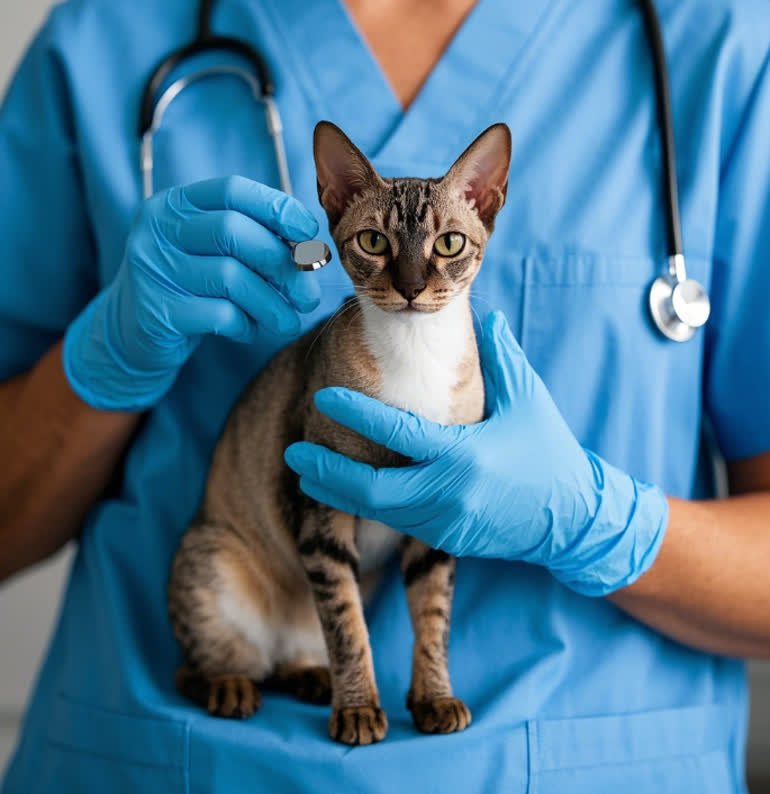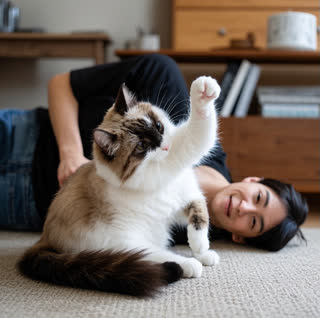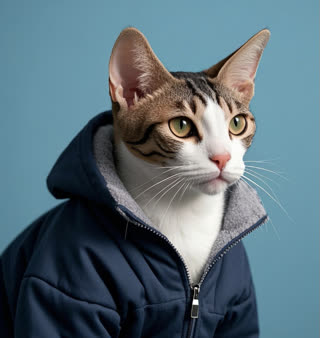The Devon Rex cat, with its elfin features, wavy coat, and playful personality, has captivated cat lovers worldwide. However, like many breeds, these energetic felines can be predisposed to health issues, including hip dysplasia—a condition where the hip joint develops abnormally, leading to pain and mobility challenges. In 2025, proactive measures for Devon Rex cat hip dysplasia prevention are more critical than ever, combining advances in veterinary science, nutrition, and responsible breeding practices. This guide explores actionable strategies to safeguard your Devon Rex’s joint health, ensuring they remain agile and joyful companions for years to come.
1. Understanding Hip Dysplasia in Devon Rex Cats
Hip dysplasia occurs when the ball-and-socket joint of the hip fails to form properly, causing friction and eventual arthritis. While often associated with dogs, cats—including Devon Rexes—are not immune. Symptoms may include limping, reluctance to jump, or reduced activity. Early detection through veterinary imaging (X-rays or ultrasounds) is key to managing this condition.
Why Devon Rexes Are at Risk:
Genetic predisposition: Poor breeding practices can perpetuate hip dysplasia in lineages.
Rapid growth phases: Kittens with imbalanced diets may develop joint stress.
Obesity: Excess weight exacerbates joint strain.
2. 2025 Advances in Genetic Screening and Breeding
Responsible breeders play a pivotal role in Devon Rex cat hip dysplasia prevention 2025. Reputable catteries, like Neon-Cat and Tex-Lapkatz, prioritize genetic testing and selective breeding to minimize hereditary risks.
Key Practices for Breeders:
Health guarantees: Many breeders offer warranties against genetic defects, including joint issues, for the first year.
Parental screening: Breeders such as LV*Mitava conduct echocardiograms and joint evaluations on breeding cats to ensure healthy lineages.
Closed cattery policies: Isolating breeding cats reduces exposure to diseases that could compromise overall health.
Adopter Tip: Always request documentation of hip screenings from breeders and avoid those who cannot provide clear health records.
3. Nutritional Strategies for Joint Health
A balanced diet is foundational to preventing hip dysplasia in Devon Rex cats. High-quality food supports muscle development and reduces inflammation.
2025 Dietary Recommendations:
Animal protein focus: Prioritize foods with chicken, turkey, or fish as the first ingredient to maintain lean muscle mass.
Omega-3 supplements: Fish oil or krill oil can reduce joint inflammation.
Weight management: Avoid overfeeding; use portion-controlled meals or puzzle feeders to prevent obesity.
Avoid: Grain-heavy fillers and artificial additives, which offer little nutritional value and may contribute to weight gain.
4. Exercise and Environmental Enrichment
Devon Rex cats thrive on activity, which strengthens muscles supporting their joints. Structured play and enrichment are vital for hip dysplasia prevention.
2025 Activity Tips:
Interactive toys: Feather wands or laser pointers encourage jumping and stretching without overexertion.
Climbing structures: Cat trees or wall shelves promote safe vertical exploration.
Low-impact exercise: Swimming (using a shallow water tray) can build muscle without stressing joints.
Avoid: High-impact activities like uncontrolled jumping from extreme heights, which may strain developing hips.
5. Veterinary Care and Early Intervention
Regular vet visits are non-negotiable for Devon Rex cat hip dysplasia prevention 2025. Modern diagnostics allow for early intervention, such as:
Puppy-style hip scoring: Adapted from canine practices, this evaluates joint alignment in kittens.
Physical therapy: Laser therapy or hydrotherapy can alleviate mild dysplasia symptoms.
Supplements: Glucosamine and chondroitin, prescribed by vets, support cartilage health.
Pro Tip: Schedule bi-annual checkups for senior Devon Rexes, as arthritis risks increase with age.
6. The Role of Responsible Ownership
Owners must advocate for their Devon Rex’s health by:
Monitoring behavior: Note changes in grooming habits or activity levels, which may signal pain.
Providing joint-friendly bedding: Orthopedic cat beds reduce pressure on hips.
Staying informed: Follow updates from reputable breeders and veterinary associations on emerging prevention strategies.
Devon Rex cat hip dysplasia prevention 2025 hinges on a combination of genetic vigilance, nutrition, and proactive care. By partnering with ethical breeders, maintaining a balanced lifestyle, and prioritizing regular veterinary visits, owners can significantly reduce the risk of joint issues in these charismatic felines. As research evolves, staying adaptable to new insights will ensure your Devon Rex enjoys a vibrant, pain-free life.










